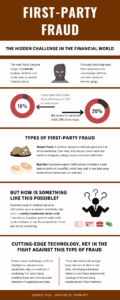The coronavirus pandemic has completely changed the economic circumstances that we find ourselves in. In fact, there are so many headlines warning about the coming apocalypse that we at GDS Modellica think it’s a good idea to try to instil some calm and, as much as possible, look for reasons to be optimistic. Few sectors other than the financial sector can truly attest to the maxim that ‘where there is crisis, there is opportunity’. And today, we want to tell you why we think this is the case.
There is more opportunity than ever before for those industry players who have already been putting pressure on the market with more flexible, efficient and convenient business models for consumers. In some of our more recent posts, such as “A decade to rethink the banking industry” or “Advantages that PSD2 brings for the consumer”, we started looking at some of these innovative ideas. Far from slowing down, the COVID-19 crisis has actually accelerated the disruption of traditional models. Today, there is a larger playing field than ever, and it’s not that we should be celebrating the pandemic but fairly appreciating the more positive consequences that it could have.
The executive editor of The Financial Brand, Steve Cocheo, has diagnosed the situation fairly accurately in a recent article about direct banks, which he claims are the clear “winners”.
“Up until early March”, explains Cocheo, “direct banking was a growing corner of the banking business”. Growing, yes, but a corner, nonetheless. A “niche business” which basically offered mobile and online financial services, generally, without any branches. These new businesses knew how to transform that “weakness” into a strength by offering high-yield savings accounts, precisely because the savings of not having branches could be passed on to consumers.
“Then COVID-19 came along”, says Cocheo. “Suddenly direct banking found itself centre stage, not for its favourable rates, but for its ideal fit with a socially separating world.” Direct banks had a clear advantage in the eyes of the customer. But there was also another hidden advantage, an advantage which suddenly became a necessity for thousands of customers: being able to operate remotely and effectively.
According to Bob Neuhaus, VP of Financial Services Intelligence at JD Power, these businesses “have shown that there is a branchless model that has high levels of satisfaction and trust”. He claims that “direct banking used to be a niche business, but now it’s the new model for banking,”.
Something else affected by the current situation are venture capital investments and business angels in Fintechs. At first glance, the big headline is the predictable decline at all levels of the sector. But beyond this, what we’re really seeing is a “cleansing” in the private Fintech bubble, something which was going to happen anyway sooner or later. The pandemic has simply brought forward an event which was already largely expected.
A report from the brokerage firm Rosenblatt Securities claims that the expected capital losses amongst the 58 largest Fintech unicorns could be around $76 billion. Expressed as a percentage, we’re talking about a market cap decline of some 15%. But regardless of how scary this might look, it’s simply the acceleration of a recession that was already on its way.
Rosenblatt suggests that these firms could be at greater risk than other firms because their multi-billion dollar valuations are dependent on strong assumptions regarding their expected future performance, revenue and exit potential, which will now be called into question due to the coronavirus pandemic. But furthermore, this means that “unicorns with negative unit economics and high cash burn will likely have to rethink and restructure”. The exceptional thing will not be that they have to do this but the speed at which they have to do it.
Lastly, we think that it’s appropriate to touch on the implications for consumers, who are ultimately the raison d’être for the banking market, and any other market for that matter. Looking at this, the financial consultants MX have produced a recent study on financial behaviour and spending amidst the COVID-19 whirlwind.
The report, which is presented as an infographic, looks specifically at the United States market. Whilst it’s not completely possible to extrapolate conclusions for other regions (or even other western markets), there are elements which turn out to be similar to the consumer experience in other developed countries. The analysis looks at the current challenging situation and flags up where consumers are most vulnerable.
For example, 70% of Americans live “paycheck to paycheck”, and 3 in 10 have no emergency savings at all. According to MX, “At a time when we’re all taking precautionary measures towards recovery, most people are feeling the economic effects”.
However, the digital opportunity again reappears: “As people start to prioritize their savings and reassess their spending, we’re seeing a spike in digital trends. At a time when people are unable to visit physical branch locations, digital is the only alternative to keep them in the know about their finances. MX data shows a 50% increase in digital engagement with mobile banking apps since December. This makes sense considering banking is one of the most important parts of people’s lives, and perhaps, even more so right now”
The truth is that, with the data from the survey that they have carried out, to talk of “savings” is almost unthinkable. Half of those surveyed say that they can’t save because they don’t earn enough, and 60% say that their primary financial institution doesn’t help them. In broad sections of the population, the percentage of people who manage the stay within their monthly budget is really small: 20% of Millennials and 25% of Baby Boomers.
This data is worrying, but it’s worrying regardless of whether we’re facing a pandemic or not. The pandemic has simply made the situation visible and encouraged solutions which would need to be adopted at some point in any case. To address this, MX includes a “60-day Action Plan” which includes basic measures, such as being strict with your monthly budget, and less common measures like sharing bank account access with your partner.
Alongside predictable conservative measures, such as minimising unnecessary expenses or deferring payments, there are also positive, necessary steps and, as we said at the beginning of this article, there is the need to stay calm. “This is a hard time for everyone, but it’s also a great opportunity to lean in and help where you can. One way of doing this is by shopping locally. If you have available funds, help local businesses that may be struggling during the economic downturn. Another way is by helping your community, whether that’s by giving blood, or supporting regional food banks”.
These are uncertain times. But where this is crisis, there is opportunity – for business models, investments and behaviour. Despite the hardship, we will certainly learn something from this experience.








